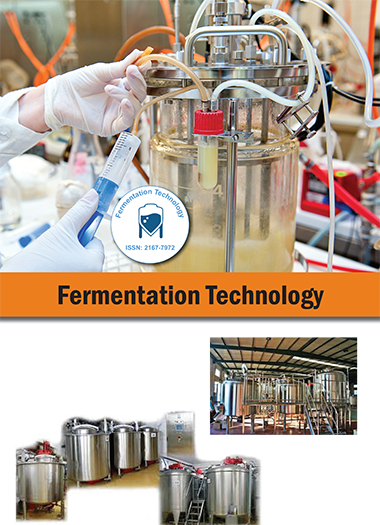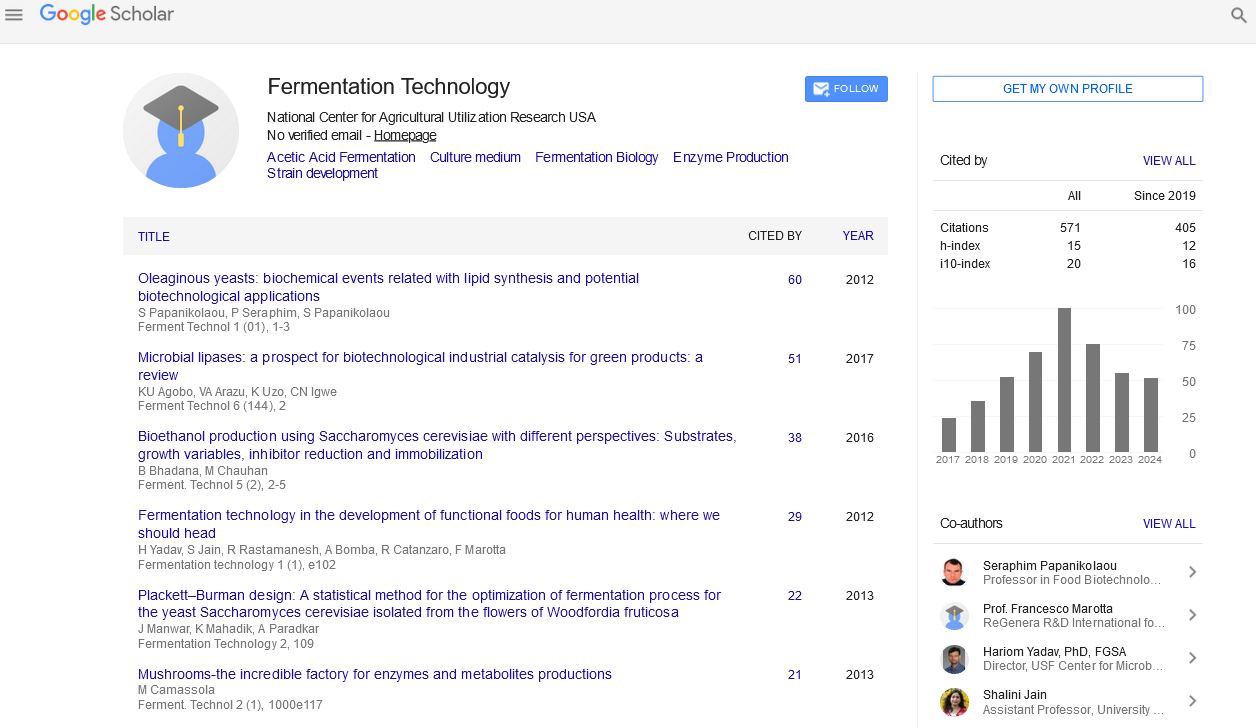Indexed In
- Open J Gate
- Genamics JournalSeek
- Access to Global Online Research in Agriculture (AGORA)
- RefSeek
- Hamdard University
- EBSCO A-Z
- OCLC- WorldCat
- Publons
Useful Links
Share This Page
Journal Flyer

Open Access Journals
- Agri and Aquaculture
- Biochemistry
- Bioinformatics & Systems Biology
- Business & Management
- Chemistry
- Clinical Sciences
- Engineering
- Food & Nutrition
- General Science
- Genetics & Molecular Biology
- Immunology & Microbiology
- Medical Sciences
- Neuroscience & Psychology
- Nursing & Health Care
- Pharmaceutical Sciences
Abstract
The Effect of Iron Related Nanoparticles on Bio-Butanol and Bio-Hydrogen Production from Clostridial Fermentation: A Mini-Review
Sayed Tariq Pachakhan, Hasamudin Sayedi and Mujtaba Barikzai*
The rapid depletion of non-renewable fossil fuels like coal, petroleum, and gas led the world to an energy crisis and environmental pollution. Hydrogen and biobutanol renewable energy sources are considered essential and the cleanest and high potential energy sources (122 kj/g). To produce renewable energy, nanoparticles were involved in inducing the production of hydrogen and bio-butanol with the assistance of microorganisms (Clostridial). Hydrogenase metal atoms present in their active site are NiFe, FeFe, and Fe hydrogenase. Hydrogen production is influenced by Iron (Fe) and Nickel (Ni) metals, which enhance the hydrogenase enzyme activity. Fe is a vital component of cytochromes in anaerobic microbes; hence the assumed addition of Fe3O4 can promote microbial cell growth and hydrogenase activity. The size and concentration of nanoparticles affect the production of hydrogen and bio-butanol. According to protein sequence analysis has been shown that amylase in Clostridium may contain a multiactive site for activity and has the ability for translation.
Published Date: 2023-01-27; Received Date: 2022-09-04

